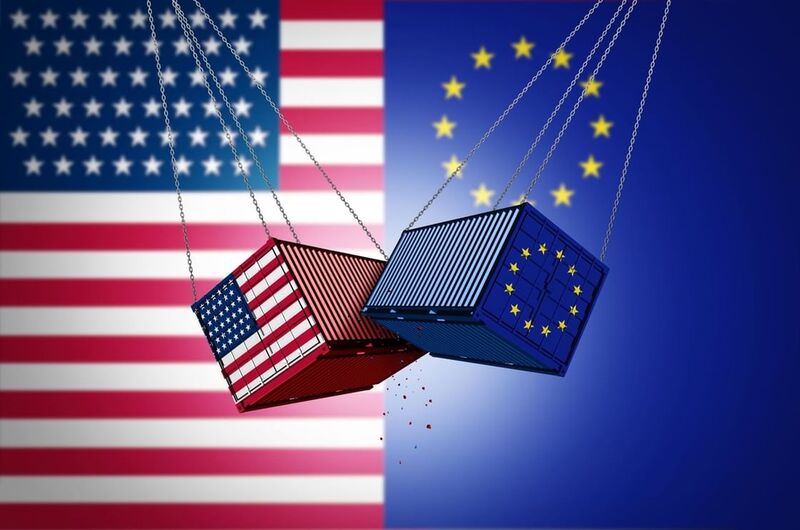The United States and the European Union have reached a Framework Agreement on Reciprocal, Fair, and Balanced Trade, a landmark accord aimed at strengthening one of the world’s largest trade and investment relationships.
The agreement, announced in a joint statement, seeks to resolve long-standing trade imbalances and unlock new growth opportunities for both economies. It also reflects a broader commitment to reindustrialisation, supply chain resilience, and cooperation in strategic sectors.
Key Provisions
- Tariff Reductions: The EU will eliminate tariffs on U.S. industrial goods and expand market access for a wide range of U.S. agricultural and seafood products. The U.S., in turn, will cap Section 232 tariffs on pharmaceuticals, semiconductors, and lumber at 15 percent, while gradually reducing tariffs on EU automobiles and parts.
- Energy & Tech: The EU pledged to procure U.S. liquified natural gas, oil, and nuclear products worth $750 billion by 2028, alongside $40 billion in U.S. AI chips. Both sides will coordinate on technology security to safeguard critical innovations.
- Defense & Investment: European companies are expected to invest $600 billion in U.S. strategic sectors through 2028, while the EU will increase procurement of U.S. defense equipment to bolster NATO interoperability.
- Non-Tariff Barriers: The agreement introduces mutual recognition of standards in automobiles, cooperation on food and agriculture certifications, and measures to address deforestation-related trade rules and carbon border adjustments.
- Digital Trade: Both sides agreed to avoid imposing customs duties on electronic transmissions and pledged to oppose digital trade barriers such as network usage fees.
- Sustainability & Labour: The EU committed to easing the burden of its corporate sustainability regulations on non-EU firms, while both sides vowed to strengthen protections for labour rights and eliminate forced labour from supply chains.
Officials from both sides described the framework as a first step, intended to expand over time to cover additional sectors and deepen economic integration.
“The Framework Agreement puts our transatlantic trade relationship on a solid footing and unleashes the full potential of our combined economic power,” the joint statement read.
With combined mutual investment stocks exceeding $5 trillion, the U.S. and EU remain among the most significant economic partners globally. The framework is expected to reshape future trade, investment, and technology cooperation, while addressing long-standing disputes and external market challenges.
–Input WAM






